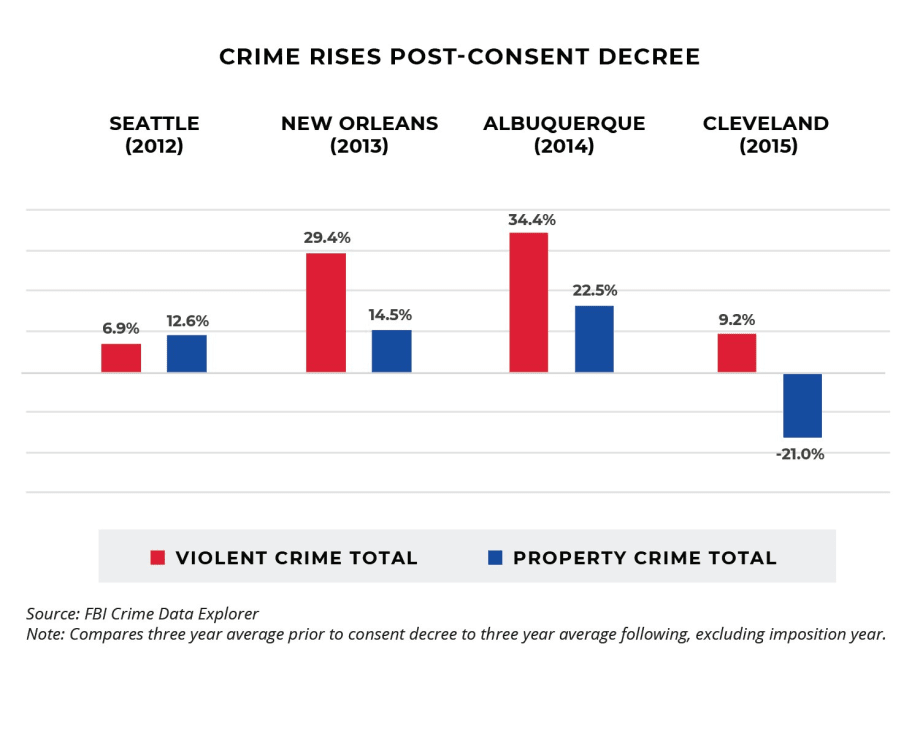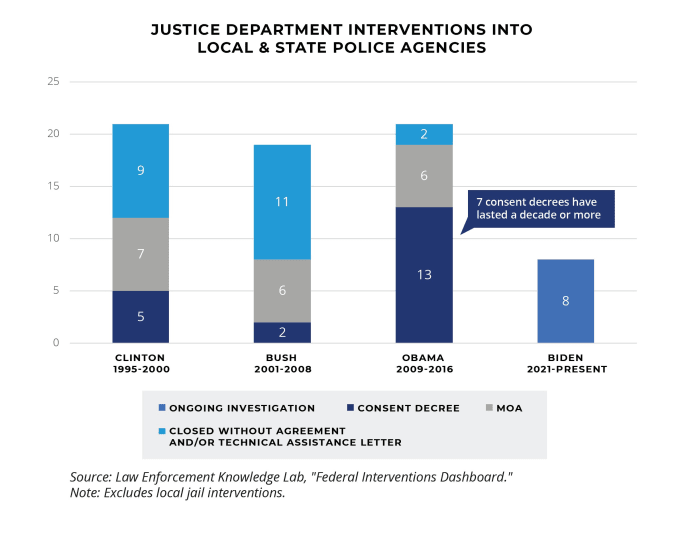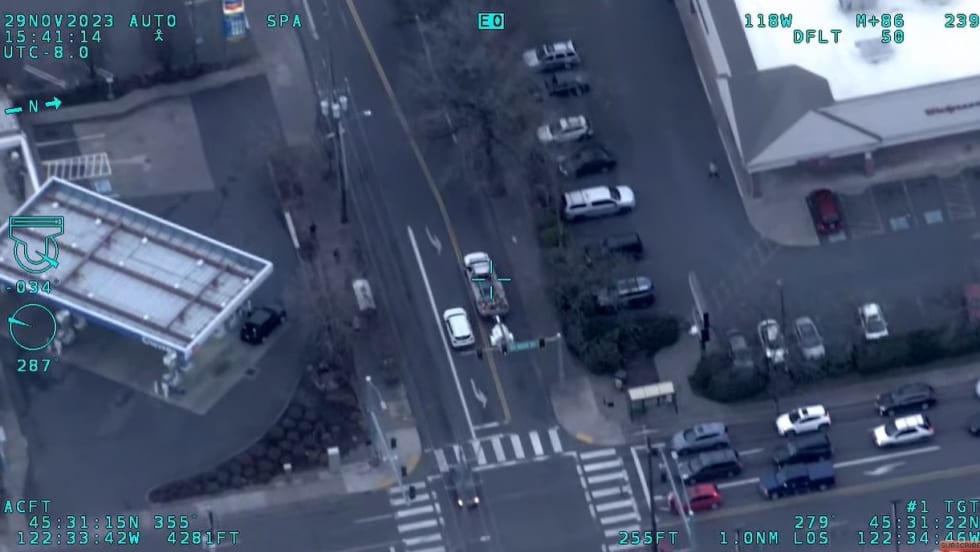A new report, “Police Reform by Decree: How DOJ Enacts its Policing Agenda,” by the Law Enforcement Legal Defense Fund (LELDF) traces the development of local law enforcement interventions by the Department of Justice since the introduction of the “consent decree” process in 1994.
Study Finds Consent Decrees Onerous, Ineffective, and Often Harmful
The report concludes: “When a consent decree is truly warranted, it must focus on the most urgent concerns. The violations should be clearly identified and fully supported by rigorous evidence."

Law Enforcement Legal Defense Fund
The report’s lead author and LELDF president, Jason Johnson, helped to lead the consent decree negotiations for the Baltimore Police Department as deputy commissioner of police (2016-2018).
LELDF’s report, which examines the nature and scope of these consent decrees over time, shows that federal consent decrees affecting law enforcement agencies can result in unintended consequences for the agencies, and their communities. The study includes original analysis of impacted cities’ crime and clearance rates as well as consent decree timelines and growth overtime.

Law Enforcement Legal Defense Fund
Federal interventions into local law enforcement agencies initiated under President Obama, and resumed by the Biden DOJ, have grown dramatically in scope and scale. It has often put its policy agenda for policing ahead of remedying specific constitutional violations with poor results. A more collaborative, targeted strategy built on narrow and achievable aims would be more effective, LELDF says.
The report concludes:
“When a consent decree is truly warranted, it must focus on the most urgent concerns. The violations should be clearly identified and fully supported by rigorous evidence. Remedies should reflect effective real-world reforms and remain inside the statutory framework. That requires setting realistic benchmarks, allocating sufficient funding, and holding police (and city) leadership accountable for enacting them effectively, efficiently, and in a timely manner.”
Key Findings:
Consent decrees are the most onerous and costly of available federal police interventions;
Recent DOJ investigations often rely on questionable evidence to prove a “pattern or practice” of unconstitutional policing;
Cities and agencies agree to burdensome settlements under duress, with nearly every targeted jurisdiction accepting the Justice Department’s claims and remedies;
These settlement agreements are used to impose policy preferences on law enforcement agencies, outside the scope of DOJ’s statutory authority and the law’s intent;
Metrics, timetables, and outcomes for agency compliance are ill-defined, unachievable, and subject to the whims federal monitors and judges;
Communities and departments under decrees suffer from rising crime and lower clearance rates, ballooning costs to local taxpayers, plummeting officer morale, and greater community dissatisfaction;
Narrowly targeted, cooperative interventions including Technical Assistance (TA) letters and Memorandums of Agreement (MOA) are more effective alternatives;
Where necessary, police consent decrees should be highly focused on remedying clear and urgent violations through proven and achievable strategies.
More Procedures & Policies

Trump Issues Executive Order He Says Will Help Police Fight Crime
“My Administration is steadfastly committed to empowering State and local law enforcement to firmly police dangerous criminal behavior and protect innocent citizens,” Trump said.
Read More →
NYPD Restricts Vehicle Pursuits to Suspects Wanted for Serious Crimes
The revamped policy, which takes effect Feb. 1, bars police from pursuing suspects for traffic infractions, violations or non-violent misdemeanors, police Commissioner Jessica Tisch said.
Read More →
NYPD Going “Old School” with Uniform, Facial Hair Policy
“It’s absolutely ludicrous that you have an officer with pink hair and nails longer than their fingers,” one Manhattan officer said. “We’re a police department not a hip hop department. Let’s go back to being police officers.”
Read More →
AZ POST Considers Revision to Marijuana Rules for Recruits
“My recommendation for your consideration is we go for a six-month window,” said Matt Giordano, executive director. “We would go to six months of the last use.
Read More →
Time to Change Our Pursuit Policies
Complicated guidelines that require officers to make decisions during the heat of the moment are not working.
Read More →
Baltimore Police Complying with Key Consent Decree Requirements, DOJ Says
If the court grants the motion, BPD must maintain compliance with the provisions for one year before the court can terminate these sections of the consent decree.
Read More →
DOJ and Consent Decree Monitor Praise Albuquerque PD for Reforms
Monitors tracking civilian oversight, one of the largest remaining roadblocks in reaching full compliance, called it “a mess” that was being cleaned up, and advocates applauded the work done by the department to come so far, so fast.
Read More →
Portland Loosens Restrictions on Vehicle Pursuits
“We have seen a significant propensity for criminal suspects to elude traffic stops, often driving extremely dangerously despite no officers chasing them,” the Bureau said in a statement.
Read More →
New Seattle Policy to Limit Police Use of Ruses
The new ruse rules seek to set clear standards on how SPD officers can use the tactics going forward, and limits use to five scenarios.
Read More →
Minneapolis City Council Approves Sweeping Police Reform
Mayor Jacob Frey hailed the agreement, which emerged after staggered and sometimes strained negotiations between the city and the Minnesota Department of Human Rights. But he also acknowledged challenges ahead, especially when violent crime flares.
Read More →
